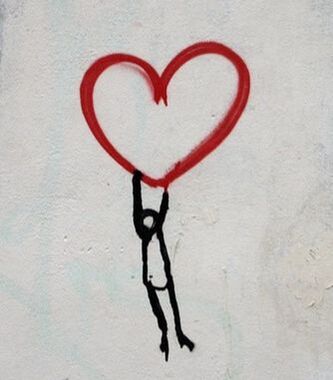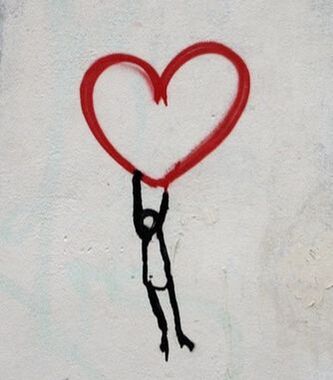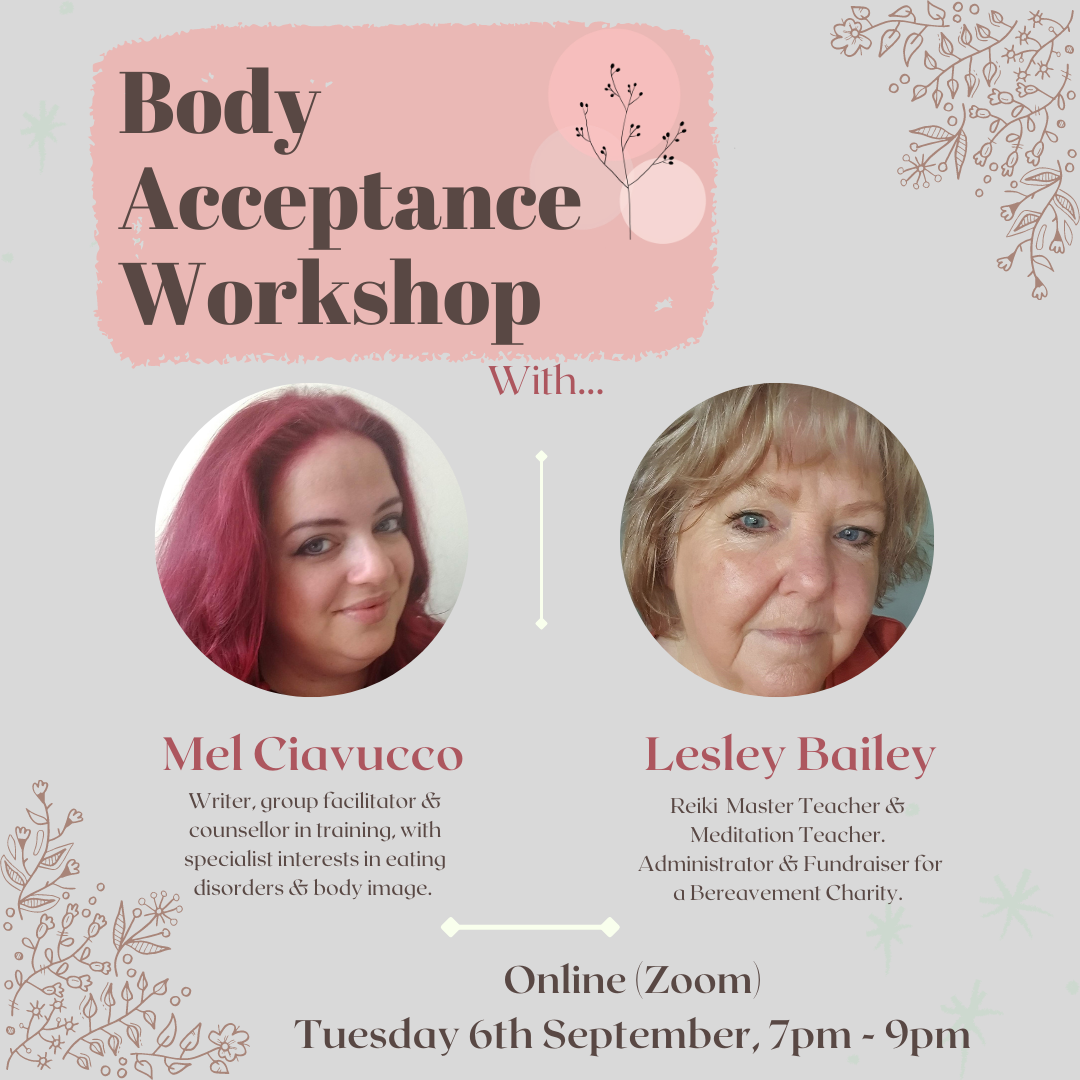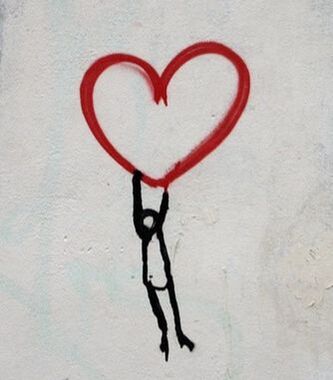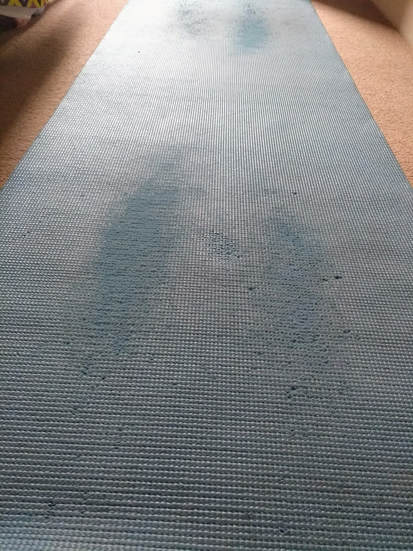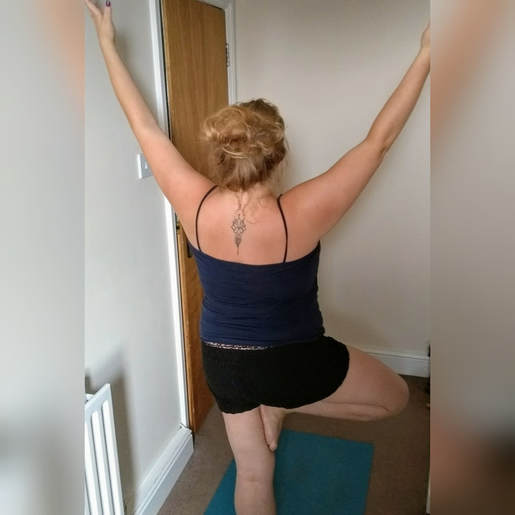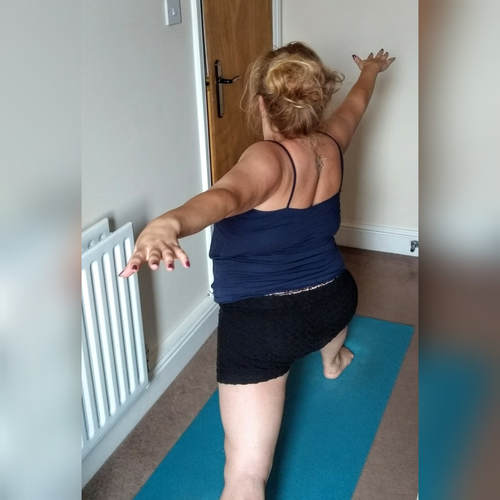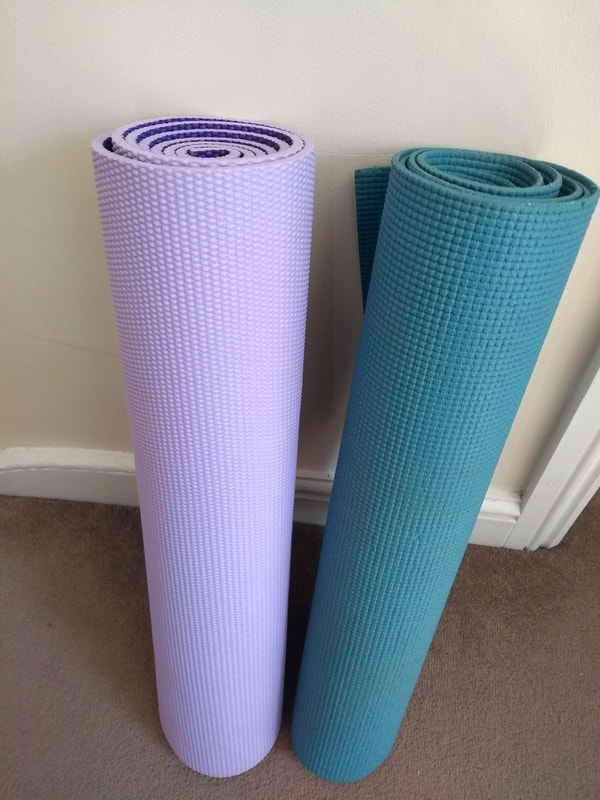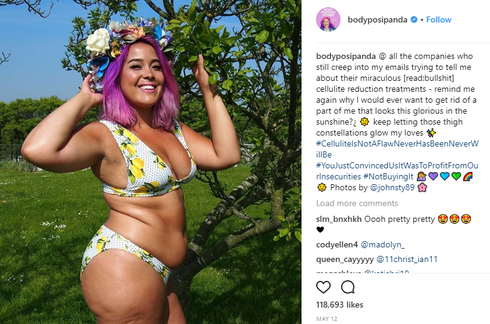|
Skinny jabs. Weight loss injections. The new miracle drugs to “tackle the ob*sity crisis” once and for all. Drugs like Ozempic and Wegovy are being hailed as wonder drugs. Oprah raves about weight loss drugs and says “ob*sity is a disease” so it’s not about willpower. This apparently can help get rid of weight stigma…by reinforcing weight loss and thin ideals? This doesn’t make much sense to me. “Ob*sity” is not a disease, nor a behaviour or an eating disorder. It’s a body size measure and there is wide range of people of varying degrees of health within that bracket. It’s not something that needs fixing. However, I understand that many people feel unhappy in themselves and want to make changes, though sadly this often becomes about making themselves smaller using any means possible. I’m not against people who choose to take weight loss intentions, in the same way that I’m not anti people who diet. When I use the term “anti-diet” I mean I stand against diet culture, the thin ideal and weight stigma/biases in our society as these are harmful to so many people. It’s important to make an informed choice, and how can we really do that when we are swimming in diet culture narratives? The decision to take weight loss drugs needs to be based on reliable information, and should you choose to go ahead, it needs to be done safely, through the correct channels and with plenty of support before and after. Having counselling before can help you explore your relationship with food and your body, as it may be that you’re experiencing disordered eating or negative body image thoughts. If this is the case, taking weight loss injections will not help – it will likely only drive the thoughts and feelings that underpin your relationship with food and make things worse. Weight loss injections: what are they and how do they work? Weight injections are for people in higher BMI (Body Mass Index) categories, and in the UK they are usually available through a referral to a weight management service. It’s meant to be more of a last resort, like weight loss surgeries, and only available for those who “really need it” i.e. higher weights. I don’t mention specific weights as this can be triggering and further reinforces weight stigma. BMI itself is very outdated and not fit for purpose – you can learn more about that in this article by Aubrey Gordon aka Your Fat Friend. Weight loss injections work by making people feel full for longer. The idea is, if you’re less hungry, you’ll eat less and that means you’ll lose weight. This may work in the short term whilst you’re on the medication, but when you come off it you will gain it back. However, eating less doesn’t necessarily equal thinness – lots of people in larger bodies have likely tried eating less, perhaps having tried every diet under the sun, and are not thin (if diets “worked” wouldn’t everyone be thin, right?) Even if people do lose weight they may not be thin, as for many people thinness is not just possible. Our weight is decided by many factors and genetics is a big part of that. If people can be “naturally slim” then people can also be “naturally fat”. Your body will work hard to keep you at a “set point range”, your body’s comfortable weight range, in a similar way to how our bodies regulate our temperature and our need to go to the toilet. Our bodies are clever and we should trust them but due to diet culture, many of us have lost that trust sadly. Do weight loss injections "work"? The long-term “success” of weight loss injections is not yet known as research has not been going long enough to be able to adequately tell. Whilst some diets and weight loss interventions can result in weight loss in the short-term weight is often gained back in the long run. In the UK, weight loss injections are only prescribed on the NHS for a maximum of 2 years, and one study has shown that people regain two-thirds of the lost weight within two years of stopping. Short-term side effects include headaches, nausea, sickness, diarrhoea, acid reflux, constipation and more. Long-term side effects of staying on weight loss injections for many years aren’t yet known, and due to fears of weight regain it is concerning how many people may try to stay on them for life. These drugs were first intended for people with diabetes, so there have been shortages recently since its growing popularity for weight loss. Celebrities, and thinner people generally, are using it to “drop those last few pounds”, many of whom can afford to pay for it privately. Purchasing weight loss injections can be expensive plus there are risks of purchasing them online. The risks of buying weight loss injections In the documentary, “The truth about skinny jabs” with Anna Richardson, she visits some private clinics in London where they were happy to prescribe weight loss injections, without even taking any health markers, and despite her not being fat. They did so with a hefty bill of course. Anna also experiments with buying weight loss injections online, which she does with alarming ease. The risks of this are many; you can’t trust what’s in them, you might get ripped off or scammed, and anyone young or vulnerable could potentially buy them including those with eating disorders. This is a very dangerous way of accessing these drugs, you really don’t know what you’re getting. People on social media also target people for sales and these are often scammers. If you decide to take weight loss injections please do so through the proper medical channels, and if you do not meet the criteria for them, do not take them. Body shame is big money The idea that being thinner equals happier, healthier and more respectable is the entire basis of diet culture. Companies thrive off the body shame people experience when they think they’re not thin enough (even if they’re not fat). A common myth is that people at higher weights are so because they eat too much. This idea is way too simplistic, it is not as basic as “calories in, calories out”. When it is seen as individual responsibility and just an easy “choice” to lose weight, it’s putting more blame and shame on people. Even if two people of different sizes ate exactly the same they could be completely different sizes. The idea that everyone has the ability to be thin, and that thinner is better, causes so much harm in our society and is a major driver for disordered eating. “The best-known environmental contributor to the development of eating disorders is the sociocultural idealization of thinness.” - NEDA Using weight loss injections only reinforces the thin ideal and the fear of weight gain and increases the harmful experiences of fatphobia and weight stigma. These drugs do not help people with their health behaviours, or other aspects associated with better health like reducing stress and better sleep. Weight loss injections offer the same enticing dieting promise that thinner equals happier and healthier, which is simply just not true. Ultimately, in the same way that every other new diet culture fad says they are “the one” that finally makes everyone thin, they’re not. There are lots of fat people in the world and we will always still be here. Eating disorders There are sadly too many people who are overlooked for having an eating disorder due to their body size. Many people may not recognise that their eating is “disordered” as diet culture has normalised restrictive eating, over-exercise and the pursuit of thinness “no matter what”. Due to myths and stereotypes about eating disorders, people often assume you need to be thin to have one, when in fact most people with eating disorders are not underweight. With disordered eating labels such as Atypical Anorexia (Anorexia but not at a low weight) and Orthorexia (a preoccupation with “healthy” or “clean” eating), the lines between eating disorders, dieting and “healthy eating” are becoming increasingly blurred. This, coupled with weight stigma, means that people are often prescribed/recommended weight loss interventions when this will likely only drive the disordered eating. A person who has struggled for a long time with dieting or disordered eating is not going to be helped by yet another thing that attempts to make them thin. The diet cycle thrives off shame, and every time an intervention fails, people blame themselves or their lack of willpower, when it’s not their fault at all. Diets are made to keep you coming back, diet companies wouldn’t make any money otherwise. Weight loss drugs, manufactured by big pharmaceutical companies, are also made so you stay on them, potentially costing you a fortune and taking on the unknown long-term risks as well as short-term side effects. Diet companies and big pharma do not care about your health. It’s all about money and they profit big time off your body shame. In conclusion… If you’re concerned about your health or have fears and anxieties about your weight, please consider exploring your relationship with food and yourself before any kind of weight loss attempts or drugs. Counselling can help, as well as learning more about disordered eating, diet culture, and body acceptance and intuitive eating. Eating and body image issues can have deeper food causes and influences which will not be helped with weight loss attempts, this just keeps the cycle going. To break the cycle and make lasting changes, a deeper exploration is needed. I offer counselling sessions online, please check out my counselling page for more info. I also offer workshops on disordered eating, body image and weight stigma, please check out my workshops page for more information.
0 Comments
Body image problems affect lots of different people. We live in an appearance-centred society, but it’s not just about vanity or being shallow. Body image issues aren’t something “silly” experienced by teenage girls, nor are they something we can just “get over”. Body image is partly about how we see ourselves and perceive our bodies, but this is influenced by wider issues such as societal views, diet culture, inequalities, power dynamics and discrimination. I struggled for many years, most of my life, with body image problems. For me this centred on weight but I’m aware that other people have body image issues that have nothing to do with weight or size. My work with individuals and in workshops however does sway toward weight because it is such a big factor for so many people. Weight stigma is so prevalent in our society; it can affect people of various sizes, though people at higher weights face discrimination and many more challenges in daily life. Hating our bodies, being unkind to ourselves and trying to change the way we look isn’t the solution. Punishing ourselves only makes it worse. As a counsellor and trainer with lived experience of body image problems, I am passionate about helping others understand body image on a deeper level, to enable them to challenge their perceptions, assumptions and internalised fatphobia. I personally found that learning about wider societal expectations and inequalities, as well as past experiences and trauma, can help build an understanding of why we struggle with body image. Knowing all of this can help us be more compassionate to ourselves, and others. I find that "body positivity" can be too fluffy. As much as it can be helpful for some people, it can just be yet another pressure; the pressure to “love yourself”, which is a big jump if you’ve hated your body for years. For me, it just seemed unrealistic to jiggle around in a bikini like the people I saw on Instagram when I couldn't even wear a swimming costume without a big baggy t-shirt over it for many years. "Body positivity" has unfortunately been capitalised on by companies who have noticed its popularity, and by influencers and thin (often white) attractive people online who want to promote themselves. Unfortunately, this has taken the movement away from the very people who need it the moment the most; fat, black, queer, disabled people and others who have faced discrimination and oppression. My body image approach involves taking a "big picture" view, understanding the societal and cultural issues surrounding how we see our bodies, including class, gender, disability, race, and more. Accepting our bodies can feel like a radical act in our society where capitalism needs us to be ashamed of our bodies in order to make money. Accepting living in a larger body can be incredibly difficult for people, given the weight stigma and fatphobia they may face. Self-worth is so often tied up in body image. For me, healing came from understanding experiences in childhood which impacted my confidence and self-esteem. Trauma, bad experiences, bullying and attachment difficulties can all play a part in how you view yourself and your body. Gender expectations also play a big part, and how comfortable you feel in your identity. Neurodivergence, such as autism and ADHD, can also impact how you view your body, and how your body feels. I’ve heard many people talk about not fitting in and feeling like they don’t belong, which in itself is a very difficult way to grow up and can result in anxiety and social isolation. Race, culture, disability, chronic health conditions, visible “differences” and much more affect body image. When the dominant beauty standard (here in the UK) is thin, white, young, able-bodied and “normal”, anyone outside of that can be deemed “different”. We could speculate that in fact, all those “different” people would make a majority, though this is more about power held by dominant groups in our society and the “othering” which maintains that power. If you’re struggling with body image, you don’t have to “love” your body right now, but you could start to explore what makes you feel the way you do about your body. Having counselling may help – if you’re interested in finding out more about my counselling service click here. For professionals, looking at the whole person and intersecting identities, and the context of their life, is so important to understand body image. But the starting point is looking at your own relationship with your own body, and the influences on how you see others’ bodies too. If you’re interested in finding out more about my training on disordered eating, body image and weight stigma, click here. It’s that time of year again when the adverts start popping up: Slimming World, Noom “we’re-definitely-not-a-diet” diet scammers, and various other teas, pills, workouts, gyms and all the other money-grabbing companies trying to shame you. There are a lot of expectations and pressure to make changes, be better, fitter, healthier, more successful… BUY MORE STUFF! So here’s your friendly reminder…you don’t have to do any of that. If you choose to, that’s up to you, but you don’t have to. Sometimes the kindest thing to do for yourself is to not do anything at all. Maybe you don’t need to change yourself, and the effort of trying to do so is stressful in itself. Many people see Christmas time as a “free pass” to eat what they want – and good for you! BUT…what happens in January then? This time of year can bring about feelings of guilt and shame, and negative thoughts about yourself and your body. For some people, this can lead to disordered eating. Whether you have an eating disorder, or you struggle with food a bit, or it’s more about not liking your body – all of these concerns are valid. Instead of punishing yourself, you deserve help and support. People can be in a vulnerable place to be lured into the diet-scammers territory when they’re not feeling good about themselves. Trust me – they don’t care about your health, they are just about making money. If you like to make New Years Resolutions, how about trying to make them without weight loss in mind? Maybe your resolution could be to be kind to yourself and work on self-acceptance. Maybe you don’t need to make resolutions at all! I remember at school going back after Christmas and being asked to share our New Years Resolutions. I never felt like I fit in so of course I jumped on the bandwagon, and what’s the thing I knew I was expected to say? To lose weight. It was the only acceptable answer as a fat girl. There’s an expectation for fat people to constantly strive to be thin. We’re expected to dedicate our lives to worrying about our bodies, trying different diets til we find “the one” that works (spoiler alert – none of them work!) Eventually, I decided I wasn’t going to stand for that anymore. I could have spent my whole life trying to change my body, but instead I chose to work on accepting it. I’ll be honest and say I don’t think I “love” my body, but it’s a life-long work in progress. I just know I’m glad I made the choice to put my wellbeing first instead of paying money-making diet scammers with empty promises. Body acceptance isn’t easy but neither is dieting. If you’ve spent a long time dieting, I get it. It’s got such a pull and a strong hold over so many people. But you deserve help and support, not to continue to be body shamed by companies, adverts, people on the internet, medical professionals or anyone else. Sometimes, the best way to priorize your health is to start by being compassionate to yourself (but also health isn’t a moral obligation and you don’t owe anyone!)
My tips for being kinder to yourself in 2023:
I’ll be running more body acceptance workshops and will be opening my counselling practice later this year, please get in touch or join my mailing list for more info. Body image problems affect lots of different people. It’s about how we see ourselves and perceive our bodies, but this is influenced by wider issues such as societal views, diet culture and inequalities. Body image isn’t something “silly” experienced only by teenage girls, nor is it something we can just “get over”. It’s not about vanity or being shallow. I could share a bunch of statistics about how many people don’t like their bodies but I think we all know… it’s a lot. I struggled my whole life with body image problems, mine mostly centering on weight but I’m aware that other people have body image issues that have nothing to do with weight or size. My work with individuals and in workshops however does tend to sway towards weight because it is such a big factor for so many people. Weight stigma is so prevalent in our society so it affects thin people too. Living in a larger body brings a lot of challenges but hating our bodies, being unkind to ourselves, and trying to change the way we look isn’t the solution (as much as it may really seem like it is!) Part of my own continued body image journey is being able to share my professional and lived experience with people, helping others understand body image on a deeper level and challenge perceptions of their bodies. I personally found that learning about wider societal expectations and inequalities, as well as past experiences and trauma, can help build an understanding as to why we struggle with body image, and this can help us be more compassionate to ourselves. I sometimes find that "body positivity" can be too fluffy, as much as it can be helpful for a lot of people. It just seemed unrealistic for me to pose in a bikini when I couldn't even wear a swimming costume without a big baggy t-shirt over the top for many years. "Body positivity" is unfortunately capitalised on by companies who have noticed its popularity, and by influencers and thin attractive people online who want to promote themselves. This takes it away from the very people who need the moment the most, e.g. fat, black, queer, disabled people and others who have faced discrimination and oppression. My body image approach involves taking a "big picture" view, understanding the societal and cultural issues surrounding how we see our bodies, including class, gender, disability, race, and more. Accepting our bodies can feel like a radical act in our society where capitalism needs us to be ashamed of our bodies in order to make money. So there can be such a lot to unpack when thinking about body image, which is why I offer workshops as well as one-to-one sessions. These can help you understand body image in more depth and help you move towards accepting your body. My next body image workshop is on Tuesday 6th September 2022 and is focused on “body acceptance” with a mix of educational content and exploration, along with guided meditations offered by meditation and reiki teacher Lesley Bailey (bios below). The online workshop is for anyone struggling with body image, or those wanting to support someone else, for professionals, or for anyone wanting to learn more about body image. It will include: ◦ Why exploring body image is important ◦ Causes of body image problems and the impact ◦ Lived experiences ◦ Weight stigma and dieting ◦ Myth-busting ◦ How we can help improve our relationship with our bodies ◦ How to support others with body image problems ◦ Practical tips and recommendations Find out more and book here. 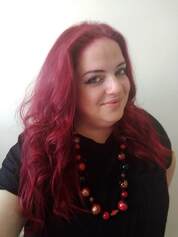 About the hosts About Mel Ciavucco: I have been working for eating disorder charities for over 5 years and have a passion for understanding body image, eating distress and weight stigma. My own lived experience of struggling with body image, food and weight stigma plays a big part in my work as a trainer, I feel it goes hand-in-hand with my professional experience to bring enriching and inspiring workshops. I am a counsellor in training, due to qualify in 2023, and I also work on a Domestic Violence Perpetrator Program as a group facilitator. I run workshops on body image through First Steps ED, plus I have created comprehensive body image resources for them. I currently run creative writing workshops for people affected by homelessness too.  About Lesley Bailey: Lesley is a trained bereavement support worker, a senior administrator and a fundraiser for a local bereavement charity, as well as a Tropic Skincare Ambassador/Leader and a Reiki Master Teacher (Holistic Health Connection). Lesley says... "I began learning Reiki for myself back in 1998 until becoming a teacher and now meditation, grounding and being centred are an integral part of my own life and what I share with others. I am happy to have shared online meditation sessions throughout the pandemic but Reiki training, treatments and workshops are now available in person again. My love of natural skincare fits in beautifully with my ‘holistic head’ and led me to be an Independent Ambassador with Tropic Skincare nearly 9 years ago. It gives me the chance to find healthy and planet protective solutions for myself, for those struggling with skincare issues or for people who just want to make more mindful choices. I train and support my lovely team of Ambassadors to do the same. My work with Stafford & District Bereavement & Loss Support Service since 2014 is both humbling and inspiring. Experiencing losses myself, I understand the importance of having a safe, confidential and caring approach to the support needed at these difficult times. The fundraising aspect of my job is both a passion and a need in order to maintain this free service for our local people." Find Lesley on Facebook: www.facebook.com/lesley.bailey.58 with links to her Holistic Health Connection and Tropic Skincare pages. To find out more about other workshops click here.  Disclaimer: I wrote these blogs a long time ago! I'm leaving them up as I don't want to delete my journey and I think showing growth is important. But it means that some of my views, and some language I use, is now different. Please be mindful of this, and that the content might be triggering, if you choose to read on. I made a body positive video in my underwear and then freaked out. I call myself body positive, but I feel like a total fraud. I make videos and write stuff about body image and self-esteem, but I’ve just spent 20 minutes crying because of my stomach fat. This isn’t a new thing - I know my stomach is fat. It’s always been that way. I’ve never been thin so seeing my stomach in a video shouldn’t be shocking, but it still is. My video involved me having some “fun” with some “suck-it-all-in” pants. A well-known brand is Spanx, but mine were a cheap version. There was no way I was going to spend more than a fiver on potentially the most uncomfortable pair of pants I’ve ever worn. So I bought them on eBay and instantly regretted it. I told myself I didn’t have to wear them, I could just have some silly fun with them instead, which might make for a good video. I hated having pictures taken of me when I was younger, back in the day when you had to get pictures developed and you wouldn’t know what they were going to come out like. There was always a weird mix of excitement and dread when going to collect them. On seeing the photos, it was as if I was being shown the “real” me, the version that everyone else in the world sees. I always hoped I wouldn’t look as fat as I expected. I was usually disappointed. I used to justify my fatness by telling myself “I’m not that fat” and that it was okay because I was doing something about it. I was doing what was expected of me – everything I could to not be fat. Seeing a photo of myself would act as proof that I was seen as too fat by the world. Even if other people said the picture was nice, all I saw was fat. I was looking for validation in a simple photographic representation of me. But what’s more real - a small projected snapshot of your body, or how you feel in the flesh? If I’d listened to my body, I’d have found that I was relatively fit and healthy. But it was so ingrained in my mind that you couldn’t be healthy unless you were thin. That fat is repulsive. That I’d never get a boyfriend if I was fat. I was explaining this thing of seeing the “real” me to my boyfriend (proving my own theories wrong, see?) and I asked if he’d ever experienced a similar thing. I asked him if he’d ever seen a picture or a video where he didn’t recognise himself, or he looked bigger or smaller than he thought he was. He said no. Not at all. Never. I can’t imagine what it must be like to grow up in a world where you’re not scared of seeing yourself in a picture or video. Where you don’t get scrutinised, or don’t scrutinise other people for their appearance. Where you’re allowed to take up space without constantly having to try and change yourself to feel like you have a place in the world. When I made this video with the suck-it-all-in pants, I had a feeling I might not post it. I thought I’d make it anyway, push myself out of my comfort zone and all that. But it takes a huge push to post it. When I watched my video back, all I could see was a big, wobbly, obese woman who looked as if she had never exercised in her life. I know I’m not that person, I guess that’s why it’s annoying. I started to notice some of the old thoughts creep back in. “If I just stopped eating bread then my stomach might shrink” and “maybe I can just get used to the hunger”. All I saw was stomach. My automatic thought was that it was repulsive. That’s when I started feeling like a fraud. Then I go onto doubt all the thoughts I have about being “healthy”. I started to fat shame myself based on the voices of other people. But then I remind myself that my health this my own responsibility and even if I’m not being healthy, it doesn’t mean I deserve less respect, from myself or other people. When you’re not feeling healthy, that’s when you need even more self-compassion and respect to get yourself through. I’ve been working hard on having body positive thoughts for years. It’s a long process. I try to catch my negative thoughts about my body and replace them with positive ones. I’ve learnt about the diet industry, and the media and society’s expectations. I’ve started to question the things I was taught about thinness and beauty growing up. I’ve been doing yoga and connecting to how my body feels instead of how it looks. I started to have a different experience of my body. But… I’m not immune to a meltdown. It’s like I “remember” that I’m a fat person and that means I’m “bad”. Being a good, kind person is way more important than my body shape. Weight is nothing to do with acting like a decent human being, yet we’re taught that being fat is a terrible thing. We associate it with being lazy, slobbish and disgusting. The irony is, many fat people are taught they’re bad people for being fat but it’s the people telling them this that have the real problem. They’re the ones who are discriminating against people. They’re the ones who are boosting their own ego by putting someone else down. They’re the ones knowingly hurting another human being. Fat people are not the problem – people who are judgemental and discriminatory are the problem. The whole world recently flipped out about Tess Holliday on the front page of Cosmopolitan. I noticed that people tend to fall into three categories in these situations: 1. The trolls - there to be as mean as possible, to provoke some kind of reaction or just to be hateful for the sake of it. They’re the equivalent of the hard bullies at school who beat people up. 2. The “Concern Trollers” - the equivalent of the two-faced popular girls in school. They pretend they act out of kindness by “pointing out” that being fat is not healthy. It’s like they think fat people have forgotten they’re fat and need reminding. 3. The millions of people all over the world struggling with body image issues. The people in this category are the reason why Tess Holliday needed to be on the front cover of Cosmopolitan. They’re the reason I write and make videos. They’re the people who are reaching out for help and inspiration. They’re the ones who will form a new generation of body positive people. They’re the teenage girls who could have grown up to obsess over and scrutinise every part of their bodies but instead, they’ll learn that they don’t need to be thin to be respected. They’ll grow up to respect their own bodies and are more likely to be kind to them. When people aren’t distracted with negative thoughts over their bodies they can focus on more important stuff such as school, college, work, careers, travel and generally just having a bloody enjoyable life. Why be worrying about your waist size when you could be travelling the world? There are so many people like me that want to pass on the experiences we’ve had to help others, but we never stop learning and growing ourselves whilst we do that. Saying I’m body positive doesn’t make all the negativity go away. There are triggers, such as this silly video I made in my underwear. I still can’t bring myself to post it, yet I am disappointed in myself for not posting it. Body positivity is meant to relieve appearance-based pressures, but sometimes I just feel the pressure to be really good at body positivity.  If you’re reading this in the future, then hope I finally posted the video, but please – no judgement if I didn’t. Body positivity is a long journey after all, and it’s a big jump from not wanting to be on camera at all to making a video in my underwear. I realise I’m telling you all of this more for myself than for you. This post is in fact just a massive “just post the bloody video” letter to myself. I’ve had lots of moments in my life where I’ve had to push myself out of my comfort zone - wearing a swimming costume in public, wearing a sleeveless top, wearing shorts. These were all terrifying at the time, but I just kept doing it. I kept wearing them and then it became less of a big deal. That’s literally it - desensitize yourself to yourself, as it were. In the same way that seeing more pictures of videos of myself made me more accepting. It’s just how I look, and instead of worrying about double-chins, I’m more concerned with the words coming out of my mouth. I keep pushing myself to make videos and I keep countering the negative thoughts. I’m rewiring my brain. So maybe what I need to do is make a video in my underwear single day and it’ll become so normal I’ll want to live in my underwear. No, I live in the UK - it’s way too cold for that. I realise now that body positivity is about being able to look at the picture or video and think, yes I have fat on my body but that’s not my defining feature. It doesn’t make me good or bad, it’s just a fact. What really matters is if the video means something. The content of the video is what’s important – and I think it’s vital to show people just quite how ridiculous suck-it-all-in pants are. I’m done trying to pretend my fat isn’t there. So those suck-it-all-in pants got what they deserved. Okay, okay, I’ll stop banging on about it and post the video soon. I realise now I must do this for humanity, for a better world without stupid uncomfortable pants. Disclaimer: I wrote these blogs a long time ago! I'm leaving them up as I don't want to delete my journey and I think showing growth is important. But it means that some of my views, and some language I use, is now different. Please be mindful of this, and that the content might be triggering, if you choose to read on. I just bought a new yoga mat. Sounds like a pretty average thing, but not for me. I love my old yoga mat so much, I refused to get a new one for a long time. It has been on such a journey with me – a physical and emotional journey. But it got so worn down it was as if I was just doing yoga on the floor. Bits were coming off and sticking to me. I had to accept it was time for a new mat. My body positivity path is a long, ongoing one.I struggled a lot with exercise as a kid. I had asthma which made running hard. I was always ridiculed for coming last in cross-country, even by the teachers. I had a PE teacher who spent more time checking our polo T-shirts were tucked into our gym pants - yes, actual gym pants - basically underwear. Shorts were not allowed. Girls were not allowed to wear bras. Seriously. Then he would check we were sitting up perfectly straight and if we weren’t we had to hang off the climbing frame for about 20 minutes. All the popular, happy kids were sporty people. I felt like I would never amount to anything because I wasn’t sporty, because I was fat. All of this made me scared to go to fitness classes as I got older, though I did anyway because I knew I needed to. I always knew I had to be striving to lose weight. All the women I’d known around me growing up were on diets (but the men, not so much). I thought I’d only ever be happy if I was thin. I thought I’d only ever be respected, be loved and be successful if I lost weight. I realise now that it’s all bullshit. The more I’ve learnt about body positivity and feminism, the more I’ve realised that we live in a world which profits from us hating our bodies. If we all loved ourselves, a lot of businesses wouldn’t survive. The world is full of hypocrisies. We’re sold junk food at the same time as being sold dieting products and gym memberships. It’s almost like they’re working together to keep us in the cycle of shame – selling us stuff to feed us up, then telling us we’re too fat and selling us the miraculous cure. I decided I was not going to buy into it anymore. Apart from my yoga mat! Granted, I did buy that but I don’t plan on buying another one for a really long time. I've had my old yoga mat for over six years.I bought it in India, where I attempted to throw myself into yoga. I’d dabbled in the past, learning from home. I realise now I was probably too scared to go to classes. What if I was the fattest in the class? What if I couldn’t keep up? What if everyone laughed at me? I realised the only way I would find out would be to try it. Sometimes we don’t get anywhere in life unless we push ourselves out of our comfort zones and take that leap into something scary. I went to a variety of different classes in India, but I struggled because I’d been unwell and I was very weak. It was just too hot and I felt like I wasn’t good enough. But I knew that yoga is not competition, there are no judgements and all that malarkey. So I did what I knew I had to do – I just kept going. When I got back to the UK I found a regular class in which I felt comfortable. It was a Hatha class that was beginner friendly. I still had a lot of niggling thoughts telling me that I wasn’t good enough, but I pushed on. I did that class for a couple of years until the teacher left in the class was replaced with a Vinyasa flow class. I’d always been too scared to do Vinyasa or Ashtanga because they are strong practices. Again, I was worried I wouldn’t be able to keep up. So I reminded myself… Comfort Zone. Out. Now. So I gave it a go and I’ve been doing that Vinyasa class ever since. I’ve now even started Ashtanga too and feel like I’ve conquered my fear! I’m not very good at stopping and looking at how far I’ve come. I need to keep trying to appreciate myself and keep practising as part of my body positivity and self-esteem quest. So, buying a new yoga mat and ending my journey with the old one seems like a good opportunity to stop and look at how far I’ve come. When I started doing yoga my arms would shake in downward dog. I was always stuck in my negative thoughts throughout the classes, worried that people were looking at me, judging me, which meant I wasn’t able to let go feel what was going on in my body. It may have taken years to get to the point where I don’t worry so much about what I look like, and where my arms don’t shake so much, but that’s my journey and I should be proud of it. I’ll still keep my old mat of course. But part of me is excited to use my new one! I’ll probably slip all over place on it at first until it gets nice and grubby like the old one (that’s what makes a yoga mat really great!). My old mat has followed me on such a journey, but I’m excited for the journey I'm about to go on with the new one.
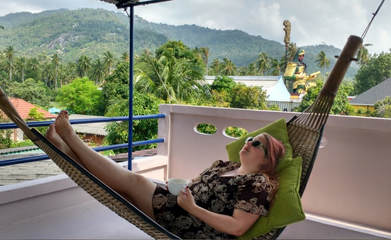 Disclaimer: I wrote these blogs a long time ago! I'm leaving them up as I don't want to delete my journey and I think showing growth is important. But it means that some of my views, and some language I use, is now different. Please be mindful of this, and that the content might be triggering, if you choose to read on. I love seeing so many happy, smiling plus size Instagrammers. Really I do. I need my regular body positivity reminders, but sometimes “loving” my body just feels like too much of a big ask. I mean, LOVE. That’s a strong word. Lots of emotion. I LOVE pizza, I LOVE chocolate buttons, and I love RuPaul’s Drag Race (the real genuine kind of love) but loving my body? I find it hard enough to say “it’s okay” on most days, or even “it’ll do”. I feel like a massive hypocrite because I make body image and self-esteem YouTube videos. I totally support loving your body. We should all love our bodies. But, and I barely want to admit this, every video I make, I cringe as I watch it back. I obsess over how funny my mouth looks when I talk, how my face looks too fat, how I gesticulate too much and how everything wobbles. But I think… No. I must not spend even a moment lingering on those thoughts. Then starts the battle in my head… “I’ve got to be body positive. If all those amazing girls on Instagram can do it then I can too.” “But I’m not them. I don’t even own a bikini.” “You don’t have to. You just have to love your body.” “Yeah, I’ll just do that.” *eyeroll* “You can do it!” “No, you’re fat and stupid!” And so on… When I was a kid I used to wear a T-shirt over my swimsuit when I was on holiday. Even taking that shirt off took years to build up to. I’m so happy for people who can take the leap into being bikini body positive so quickly, but for many of us it may take years to get to that point. We may never even get there, and that’s okay. We need to be kind to ourselves because body positivity should not have a hierarchy. It doesn’t make someone better at body positivity just because they’re wearing a bikini. Body positivity is about questioning and changing your thoughts, not necessarily changing your body. Changing the negative thoughts about your body can help you feel confident in other aspects of your life. Feeling bad about my appearance made me want to hide from people. I wanted to shrink away until I didn’t exist anymore. I was shy and timid, scared of everyone and the world. Body positivity is a journey. We can’t all love our bodies right now and we all have a different path to take. The important part is knowing that we’re on that path, or at least near the path. You might take a few steps forward and then a few steps back. You might be right at the very start just looking at the path. It’s all okay. Wherever you are, it’s okay. Because everybody’s journey is different, I can’t tell you what will work for you but I’ll share with you the main ways that helped me on my body positive path: TravellingIn my mid 20s I went to Australia. You can’t wear a t-shirt over a swimsuit in Australia – you’d look like a right dingo (I never heard a single Australian person say that, I just really wanted to use it). I needed a proper tan to prove I’d actually been away and not just hiding in my room at my parents’ house. I bought a cool tankini – a top and shorts – which I still felt uncomfortable in but I just kept wearing it until I started to get used to it. It was a big deal for me. It’s important to stop and appreciate how far we’ve come. For some people it wouldn’t be much, but for me that was a giant hurdle. Gender EqualityWhen I was younger it literally never crossed my mind why every woman I knew was on a diet yet every man wasn’t. It was just normal for me. I never remembered a time when I liked my body, it simply wasn’t allowed. Women had to be in constant dissatisfaction, always striving to change themselves, usually for the attention of men. From a very young age I knew I would have to make myself thin and beautiful if I expected to get anywhere in life. I had to lose weight if I wanted to find a man. My worth was judged on a scale held up by men. Men have a whole different set of body images expectations on them. They’re expected to be muscly and manly, whereas women are expected to be slender and petite. More recently, women are allowed to be ‘curvy’ as long as the curves are in the right places. Arse and boobs = fine. Arms, stomach, face = oh hell no. As long as it looks sexy, that’s what matters. As long as you’re still deemed attractive by men. For people who don’t want to conform to a gender, it’s even harder: trying to navigate both of these sets of gender expectations. The difficulty people have with trans and non-binary people only proves to demonstrate that gender imbalances still exist in our society – when people demand to know if someone is male or female, what they’re actually doing is figuring out how to treat them. If we truly treated people equally, it wouldn’t matter. Social MediaFollowing positive people on social media can really help. I love Instagrammers such as Body Posi Panda and plus size yogi Jessamyn Stanley. When social media first became popular I didn’t really know what to do so I just followed everyone and everything. Once I realised that I could tailor it to what I liked, I got rid of anything negative and filled my feed full of inspiring, positive stuff. Get rid of anything that doesn’t make you feel good. The unfollow and block buttons are your friends. CounsellingI was bullied a lot as a child. The things we learn as kids can take a long time to unpick. Those nasty voices from the past can stay with you all of your life. Seeing a counsellor/therapist can help you process your past and help you gain a new perspective on your life. It’s not a quick fix but it can help get to the root of problem. Cognitive behavioural therapy (CBT) can also be a good option in terms of building self-esteem as it involves challenging and changing your thoughts and behaviour. It can help you feel a lot more self-assured and confident. However, therapy can be expensive. Mental health services are underfunded and often have long waiting lists. Having worked for a counselling service for a long time, my advice would be – don’t leave it until crisis point to make the call. If you’re in the UK, go to your doctor as there may be CBT courses and counselling services available on the NHS. For a private counsellor you could look at the BACP for counsellors in your area. Yoga, Meditation and Holistic TherapiesMeditation is hard. I’ve never been good at just sitting and meditating silently, so yoga is more my thing. It helps me to focus, feel more balanced and it helps regulate my emotions. It helps quieten down the monkey mind (that battle in my head of what I should be thinking vs what I am thinking). I’ve tried all sorts of holistic therapies to help with stomach problems and anxiety issues. There are lots of different therapies out there, many of which can help with confidence and self-esteem. EFT (Emotional Freedom Technique) was particularly helpful for me. It involves tapping on different meridian (energy) points in your body which can help clear emotional blockages. A Creative OutletWriting is my outlet. It can be a great form of therapy as it’s a way to process emotions. It may involve writing in a journal or writing fiction. Writing fictional characters can sometimes be very helpful to process the way you’re feeling, even without knowing it. Creativity can be a wonderful channel, whether it’s writing, art or music. Find your creative outlet. I want to thank all those beautiful people on social media for showing off their diverse bodies of all shapes and sizes, colours and abilities. You’re an inspiration. I hope to help bridge the gap so the jump is not so big for people who want to join you guys in bikinis. For everyone else, it doesn’t matter where you are on your path. Just keep reading, learning and questioning. Learning about yourself is the best way to start accepting yourself. Question everything you’ve ever learnt. Know that you don’t have to do it alone – when you’re having a bad day, reach out for help. Trust your path and know that there are always other people there with you. We’ll get there together.
Helpful resources If you're feeling down, reach out and speak to someone now: Samaritans: 116 123 Mind info line: 0300 123 3393 NHS Moodzone - self-esteem info For UK counsellor listings - BACP My most favourite Ted Talk ever: "To this day"...for the bullied and the beautiful (by Shane Koyczan) |
Categories
All
Archives
June 2024
|

